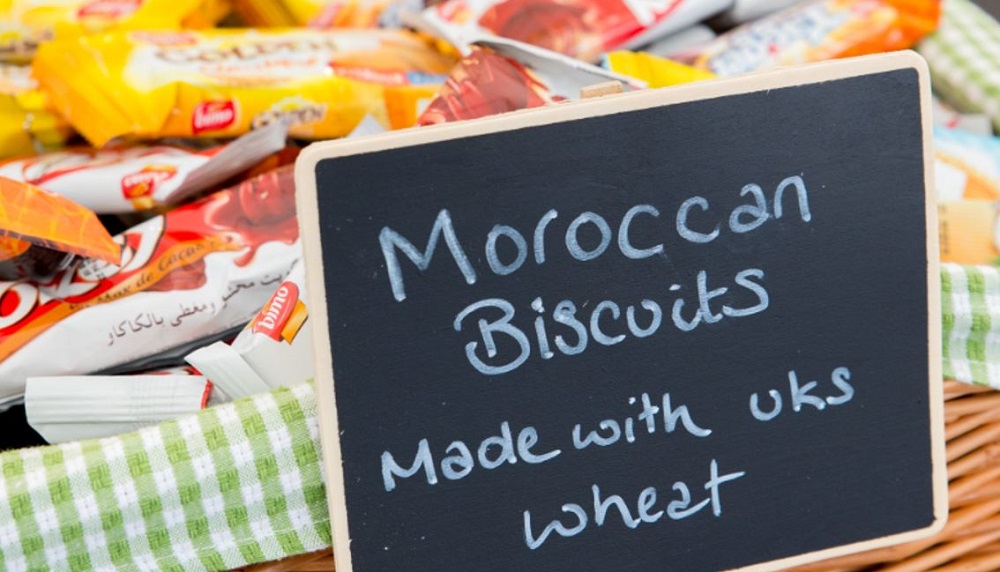Raising the profile of UK grain in Morocco
Wednesday, 3 August 2022
AHDB aims to keep UK cereals on the shopping lists of the country’s milling and feed compounding companies. Dorit Cohen, Exports Marketing Manager, explains how.
When it comes to global trade, it is important to visit target markets to understand customer requirements, identify opportunities and nurture relationships with key decision makers.
Recently, members of the AHDB Exports team went on a mission to Morocco to promote grain from UK wheat and barley crops.
A tough year
2022 is a tough year for Moroccan farmers, their supply chain and government, as the country is experiencing its worst drought in 30 years.
The contrast with 2021 could not be starker. In 2021, cereal production reached record highs (10.3 million tonnes). This year, cereal harvest statistics peg the country’s production at three million tonnes. The federation that represents Moroccan millers estimates that up to 70% of the harvest has been lost, triggering a heavy import campaign in volume and value.
Recently, France has topped the list of suppliers to Morocco. This is set to continue, with the country forecast to supply at least half of Morocco’s estimated seven million tonne wheat import demand. Traditionally, Ukraine and Russia have satisfied around 35% of the Moroccan wheat import requirements. However, war is disrupting the flow of grain from these territories and this creates opportunities in the global marketplace.
Biscuit wheats
Morocco’s biscuit market is particularly interesting. The country’s soils are generally unsuitable for biscuit-wheat production. This creates an annual demand for biscuit-wheat imports, which are currently 80,000 tonnes and growing.
The growth is linked to a change in the diet of Moroccans, which is becoming more westernised and includes a taste for European-style biscuits. In response, biscuit factories are popping up across the country and they export their products across Sub-Saharan Africa.
This presents both an opportunity and a challenge for UK growers. Developed by AHDB, the UK’s soft biscuit-grade wheat (uks) is widely known in the Moroccan market, even among millers who have not used it. It has a good reputation for producing Moroccan biscuits that no other origin can match. Its unique quality characteristics mean no additives or improvers are required for uks flour.
As a result, demand for uks wheat is strong. It is often favoured over French or Canadian biscuit wheat.
American biscuit-grade (soft red winter) wheat is not viewed as a competitor due to high freight costs.
So, what’s the issue? Well, the challenge is clearly not associated with demand for UK grain. The 2022 AHDB Planting and Variety Survey results reveal the nub of the problem.
UKFM Group 3 wheats are at the heart of the biscuit-making grade. However, the wheat area dedicated to varieties in this group is far lower than any other flour group. This contributes to a supply tightness, causing challenges for both export and UK markets (where demand is also strong). Restricted supply can result in relatively high prices compared to soft wheats from other export origins.
When planning your crop rotations, it is worth discussing with grain buyers the opportunities that a Group 3 wheat variety could deliver to your rotation and your business.
Feed barley
In addition to animal feed, barley is used for human consumption, especially in southern Morocco. Each year, up to 100,000 tonnes are used to produce Moroccan soups that are rich in fibre and low in gluten.
This season, Morocco is expected to import all its barley – up to a million tonnes.
Until recently, Ukraine and Russia had competitive prices and supplied most of the barley imported into Morocco. Now France and the UK supply barley to help fill the gap created by the ongoing war.
In August, the first grain shipments were dispatched from a Ukrainian port since Russia’s invasion. However, significant disruption to trade flows is anticipated for many months.
The Exports team will continue to engage with the Moroccan Millers Federation and buyers to keep opportunities open for UK grain.
To learn more about the team’s activity, visit ahdb.org.uk/cereal-exports



.jpg?v=637780588130000000)
